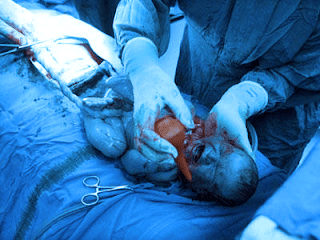Your baby will examine several times in the first week. The midwife will weight him regularly, and check him daily for any problems or signs of infection. After born, your baby will have several tests and examinations to check that he is healthy and that all is well. Soon after birth a caregiver will perform a general overall check of your baby. This examines your baby's physical appearance, five fingers - five toes etc. and is usually done when the baby is being measured and weighed, in the hour or two after being born. The midwife will weigh your baby and measure his length and the distance around his head.
Some babies may face challenges after birth. Babies that need special care may be placed in the neonatal intensive care unit (NICU). This is a part of the hospital where babies are cared for using advanced technology and specially trained health care professionals.
Some babies may face challenges after birth. Babies that need special care may be placed in the neonatal intensive care unit (NICU). This is a part of the hospital where babies are cared for using advanced technology and specially trained health care professionals.
As soon as he(she)’s born, your midwife will carry out some basic checks:
- Assessing his /her color
- His/her breathing
- His/her heart rate
- His/her movements
- His/her crying
















.png)













